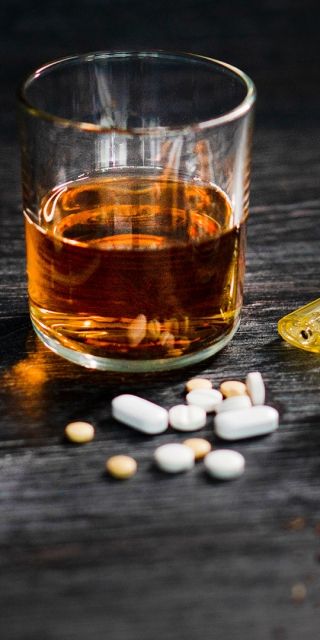
Drug and Alcohol Research Group
Breadcrumb
Drug and Alcohol Research Group
Welcome to the Drug and Alcohol Research Group at BNU. As the research arm of the University's Substance Misuse Working Party, we are interested in the impact of alcohol and illicity drug use on all stakeholders, including users, families, universities and support services. We are especially committed to working with the local community, engaging with partners on the Buckinghamshire Council Drug and Alcohol Strategy, and with listening to the unheard voice of all those affected by substance use and misuse.
Selected Current and Recent Projects
Wellness warriors on the run
In drug and alcohol recovery, exercise can be a powerful tool that provides physical, psychological, and social benefits, supporting the rehabilitation process and promoting long-term abstinence. BNU’s Wellness Warriors on the Run intervention embraces several of the NHS 5 Steps to Wellbeing, supporting participants to connect with others, become physically active, give back to others, and pay attention to their present moment in the journey. The initiative provides users of illicit drugs and alcohol with informative sessions about nutrition and motivation and progresses them to the Couch to 5K programme. The physiological and psychological benefits will be evaluated.
For more information about this project, please contact Charmain Clayton (charmain.clayton@bnu.ac.uk).
Current PhD / MPhils
‘The use of image and performance enhancing drugs (IPEDs) in non-competitive gym and fitness athletes: Prevalence and motivations for use’
Past PhD / MPhils
‘Alcohol, transitions and the university ‘bubble’: A qualitative case study’
‘The implications of drug treatment practitioner favourable bias towards illicit drug users on client treatment outcomes’
Selected Outputs
Clayton, B. (2013). Initiate: Constructing the ‘reality’ of male team sport initiation rituals. International Review for the Sociology of Sport, 48(2), 204-219.
Clayton, B., & Harris, J. (2008). Our friend Jack: Alcohol, friendship and masculinity in university football. Annals of leisure research, 11(3-4), 311-330.
Foster, J. H., Martin, C. R., & Davis, J. P. (2021). Alcohol consumption during the COVID-19 lockdown period: predictors of at-risk drinking at different AUDIT-C cut-off thresholds. International journal of environmental research and public health, 18(24), 13042.
Horton, L., Duffy, T., Hollins Martin, C., & Martin, C. R. (2015). Comprehensive assessment of alcohol‐related brain damage (ARBD): gap or chasm in the evidence? Journal of Psychiatric and Mental Health Nursing, 22(1), 3-14.
Martin, C. R. (Ed.). (2008). Identification and treatment of alcohol dependency. M&K Update Ltd.
McPherson, A., & Martin, C. R. (2011). Is the Hospital Anxiety and Depression Scale (HADS) an appropriate screening tool for use in an alcohol‐dependent population? Journal of Clinical Nursing, 20(11‐12), 1507-1517.
McPherson, A., & Martin, C. R. (2017). Are there gender differences in locus of control specific to alcohol dependence? Journal of clinical nursing, 26(1-2), 258-265.
Nakahara, T., Hashimoto, K., Hirano, M., Koll, M., Martin, C. R., & Preedy, V. R. (2003). Acute and chronic effects of alcohol exposure on skeletal muscle c-myc, p53, and Bcl-2 mRNA expression. American Journal of Physiology-Endocrinology and Metabolism, 285(6), E1273-E1281.
Contact Information
For more information about the Drug and Alcohol Research Group or any of its projects, please contact group lead Dr Nicola Mallowan (nicola.mallowan@bnu.ac.uk).






